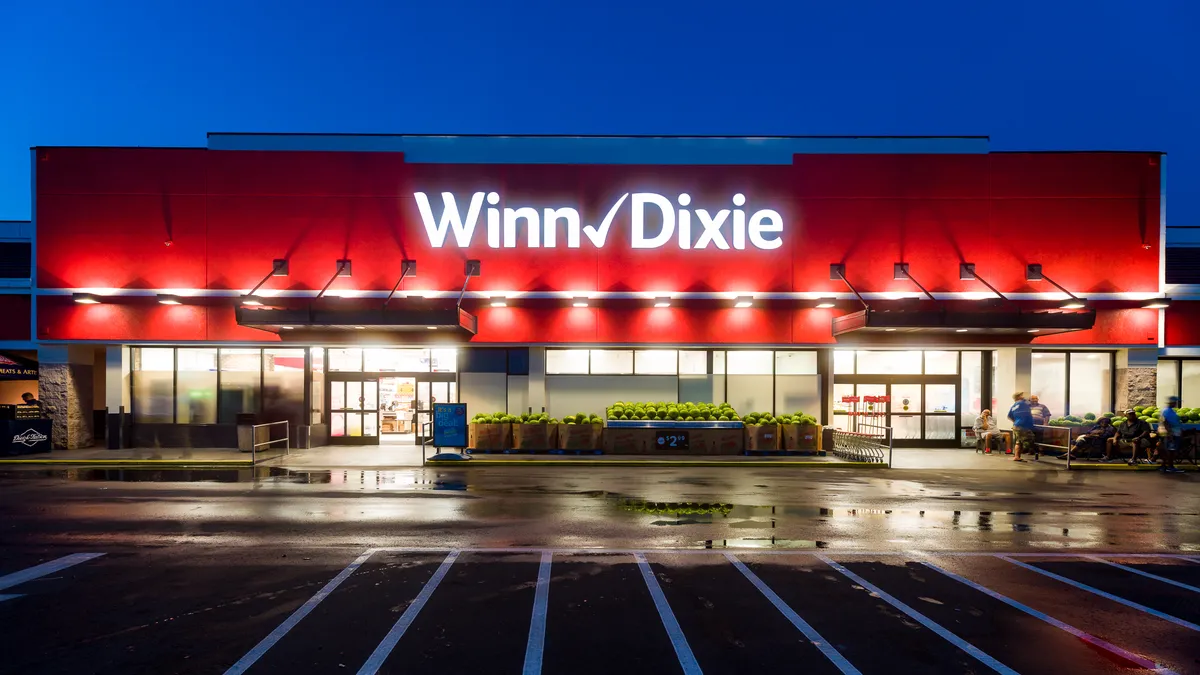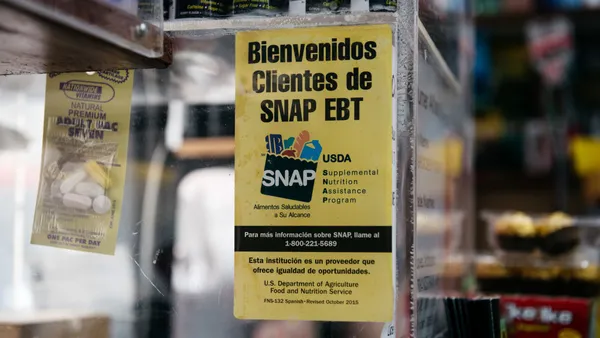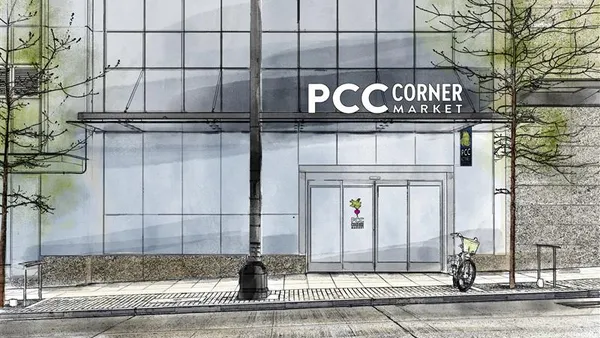Dive Brief:
- Southeastern Grocers has notified the Securities and Exchange Commission that it is considering becoming a publicly traded company, according to a press release from the grocery chain.
- The company filed its draft registration statement confidentially, which allows regulators to review the grocer's plans for a possible initial public offering privately.
- Southeastern has been shifting focus since emerging from bankruptcy in 2018, selling dozens of stores to other food retailers and announcing earlier this year that it would eliminate its storied Bi-Lo brand.
Dive Insight:
While the draft registration statement Southeastern submitted is only an early and tentative step in the IPO process, the fact that the company is thinking about entering the stock market represents a sharp change from the situation it faced less than three years ago, when it filed for Chapter 11 bankruptcy.
At that time, Southeastern was saddled with hundreds of millions of dollars in debt and struggling to hold its own against a slew of rivals angling for a share of the competitive grocery markets where it operates.
Southeastern has spent much of 2020 shoring up its finances and tightening its focus on Winn-Dixie, its flagship grocery chain. In June, Southeastern announced that it would sell 62 stores operating under its Bi-Lo and Harveys brands to Ahold Delhaize unit Food Lion and eventually drop the Bi-Lo banner. In June, Southeastern said it would sell 23 more Bi-Lo and Harveys stores to Alex Lee and B&T Foods.
In addition to Winn-Dixie, Bi-Lo and Harvey’s, Southeastern runs supermarkets in South Florida under the Fresco y Más banner.
The store sales have positioned Southeastern to step up its focus on the Winn-Dixie chain, which the company has worked to expand and renovate even as it has shed locations operating under its other brands. Analysts have noted that Winn-Dixie represents Southeastern's best hope to rejuvenate its long-term prospects, in part because of their long equity with consumers in the competitive but population-dense Florida grocery market.
If it does end up going public, Southeastern would be taking a similar path to Albertsons, which rode a wave of elevated sales during the coronavirus pandemic on its way to the stock market. Although Albertsons' IPO came in below estimates, the grocer has recorded industry-leading comparable-store and e-commerce sales, and has gained "several million" new shoppers during the first half of the year.
Southeastern is on track to convert eight stores it bought from Lucky’s and Earth Fare when those chains ceased operations into Winn-Dixie locations by the first quarter of next year, Southeastern CEO Anthony Hucker said in an interview with the Tampa Bay Times.
Southeastern is contemplating an IPO a little more than six years after dropping an earlier plan to go public for undisclosed reasons. The company, which had been traded publicly as Winn-Dixie since the 1950s, also went through bankruptcy in 2005 en route to being taken private by the owners of the Bi-Lo chain in 2012.













